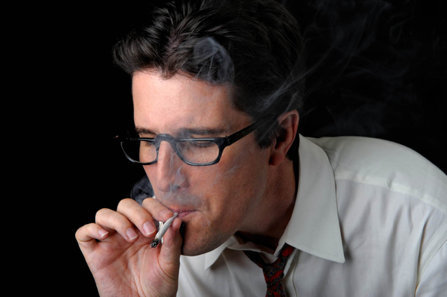Workplace Drug and Alcohol Use—A Concern Among European Employers

Although drug abuse has always been prevalent among the unemployed, alcohol and other drug use in the workplace continues to be a major concern in many European countries.
Eurofound reports that drugs and alcohol are a serious problem for 5-20% of the European working population. Some fields, such as construction, transport, and hospitality appear particularly prone to the use of drugs and excessive alcohol, and in the instance of transport and construction, this can pose extreme risks to the users as well as those around them.
Alcohol in the Workplace
According to a report on the EU Citizens’ Attitudes Towards Alcohol northern European countries have some of the highest consumption of alcohol, with 93% of Denmark citizens reporting they drink, with Sweden following at 90% and the Netherlands at 88%. This obviously spills over into the workplace for a portion of those who do not contain their consumption to off hours.
For some individuals, the use of alcohol may be directly work related. Of those reported using alcohol on the job, the common reason for doing so is difficult working conditions, whether it’s arduous physical conditions, a few spirits to ward off the cold, or cooling off with a beer in the hot summer sun. But for some individuals, it is a matter of addiction, one they are in the grips of 24 hours a day, and alcohol accompanies them to the job site each day.
Increased Risk of Accidents
A survey conducted by Ledernes Hovedorganisation of members of the Danish Association of Managers and Executives by showed an association between alcohol use at work and the risk of work accidents. This survey revealed that after the introduction of an alcohol policy 43% of the businesses reduced their number of work accidents. It is also a fair assumption that alcohol use outside of work can result in higher absenteeism, poor job performance and a higher risk for accidents.
Cannabis Use Becoming More Accepted

Many people today feel cannabis is just as acceptable as drinking alcohol, and some view it as the lesser evil. So it is not surprising that more and more workers have no qualms about getting high while on the job.
Cannabis has been found to be used as a way to distract workers from monotonous jobs particularly when they feel there is no chance for advancement. In these situations, cannabis soothes the feeling of meaninglessness.
The use of cannabis is higher among young people, whereas there is a greater prevalence of other types of drugs such as cocaine among highly qualified people or those who work in professional categories.
To Test or Not to Test
Drug testing laws vary by country and are very complex, particularly when it comes to prescription drug use.
In France, it is illegal to inquire about or test for drug use, although the occupational doctor may make a determination if the person is unfit. In both Germany and Sweden an employer can require a drug test upon hiring an employee, yet further testing is subject to other restrictions, and Italy only requires testing for certain positions.
While prescription drug use can certainly hinder job performance as well as create a dangerous work environment, many countries do not allow for testing of prescription drug use of employees. This poses a problem for many employers, especially in light of the level of misuse in recent years. Due to these difficult and complex laws, many employers feel they can best benefit from setting firm policies and taking a preventative approach.
If someone is addicted to drugs or alcohol the most important thing is for them to get help to achieve sobriety and long term recovery. For five decades Narconon centers in Europe have been helping individuals to overcome their addiction every day.

